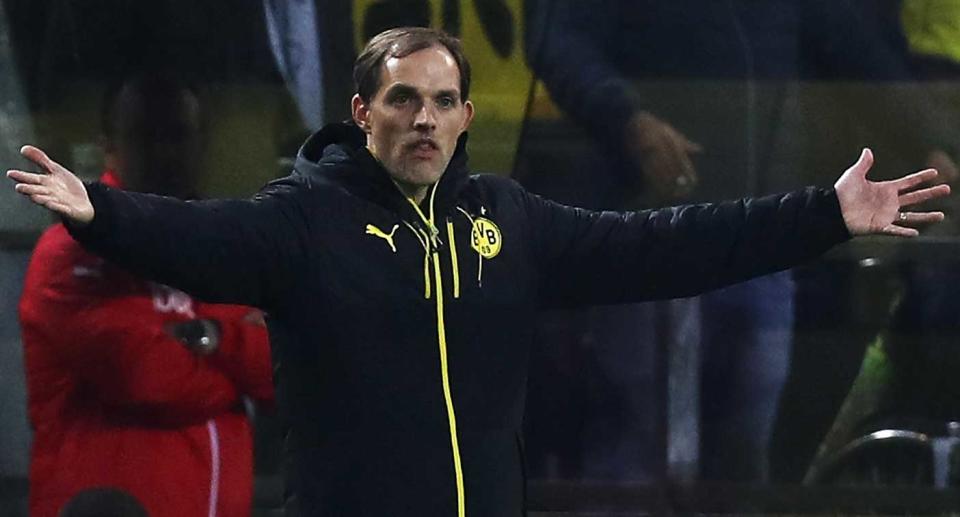UEFA should own up to its mistake and have Dortmund-Monaco first leg replayed

Borussia Dortmund didn’t want to play.
Borussia Dortmund shouldn’t have had to play.
On Tuesday, Die Borussen’s team bus was targeted by three bombs planted by a suspect with apparent terrorist motives. One hit its target as the bus left the team hotel in Dortmund – in Europe, even the home teams sometimes stay in hotels the night before a game. It injured two people, including defender Marc Bartra, whose wrist injury required surgery and who will be out for a month.
[ Follow FC Yahoo on social media: Twitter | Facebook | Tumblr ]
The players were badly shaken. Understandably. Even if things could have been much worse.
The home game with Monaco, the first of their Champions League quarterfinals bout, was called off. And then it was rescheduled for the next day, just 22 hours after the original kickoff had been planned.
Dortmund gave a gamely performance but lost 3-2 on a pair of bad defensive errors – an odd own goal and a big slip-up in the back. After the game, the players and manager Thomas Tuchel conceded that they’d been preoccupied. And they hardly seemed to be using it as an excuse, just in case such a thing even has to be pointed out. Their minds just hadn’t been on the game.
Tuchel also let slip how the decision for the game to proceed the next day had gone down.
“We were never asked; we were informed by a text message that the UEFA made a decision in Switzerland. It felt lousy. And that sticks with us,”
Tuchel told the press, per ESPN. “Minutes after the attacks, the only question was whether the game could go through or not. We were treated as if a beer can was thrown at the bus. It gives you a feeling of impotence.”
Tuchel complained that his team was expected to deliver a game regardless of what it had just been through. “It does not feel good,” he said.
Dortmund allowed each player to decide if he wanted to participate. Several opted against it. As such, Dortmund could muster just four bench players, rather than the standard seven.
Tuchel felt his side needed time to grieve. “It’s not done by playing the match,” he said. “The match itself was a distraction from coping with the events. We just had too little time.”
And he’s absolutely right. It was absurd for the targets – and in one case, victim – of a terrorist attack to be expected to shake it off within a few hours and get on with their jobs. It’s inexcusable for the club to not even been consulted in the process.
This sort of unfeeling administration by UEFA, European soccer’s governing body that runs the Champions League, will not be lightly forgotten by Dortmund. Certainly, other clubs and players will have taken note. Central to the long-running friction between the sport’s governing bodies and players and clubs has been the feeling that the latter are treated as commodities by the former, to be exploited for maximum financial gain.
UEFA’s bungling of a sensitive situation only reinforces this impression. And it wouldn’t have been such a big ask for someone in Nyon, where UEFA is headquartered in Switzerland, to pause and ponder whether perhaps, just this once, an exception should have been made to the protocol. UEFA is sometimes such a slave to its own process that it strips its governance of humanity.
This was an exceptional and unprecedented situation. A team was attacked by a terrorist – or perhaps several of them. This was no time to go to the usual playbook and treat it as being no different from a flooded field or a power failure or a lightning storm.
Dortmund shouldn’t have played on Wednesday. And as such, it shouldn’t have lost – even though that feels far less consequential.
The decent thing for UEFA to do would be to own up to its mistake, learn from it and strike that game from the record and play it again.
When Dortmund is good and ready.
Leander Schaerlaeckens is a soccer columnist for Yahoo Sports. Follow him on Twitter @LeanderAlphabet.


